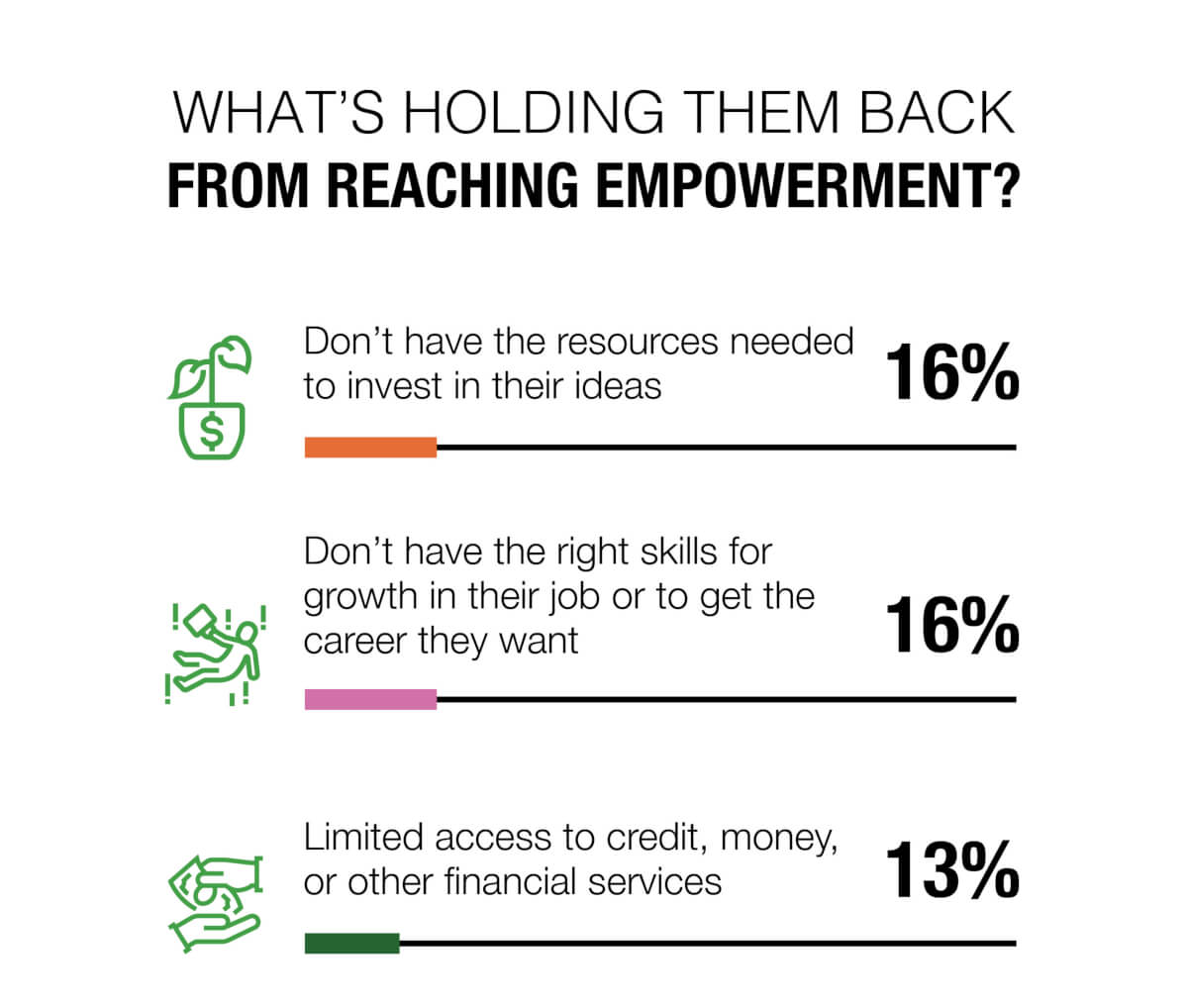NEW YORK — Younger American adults are more likely to feel “economically empowered” than their elders, according to a new survey. When looking at the 2,000 individuals surveyed, researchers found that Gen Zers and millennials were the most likely to currently feel economically empowered (66% and 70%, respectively).
In comparison, only 51 percent of Gen X and 52 percent of American baby boomers felt the same way. The poll revealed a similar trend among 5,000 international respondents from Brazil, Vietnam, Taiwan, Indonesia, Malaysia and the Philippines, who also participated in the survey. Globally, millennials were the generation most likely to feel economically empowered (69%) — while baby boomers were the least (56%).
Commissioned by Herbalife and conducted by OnePoll for Financial Wellness Month, the survey defines “economic empowerment” as providing people with the education, training, and skills that they need to find a job, earn an income, and become self-supporting.
Almost a fifth of the global respondents (18%) don’t currently feel economically empowered — with the top reason being a lack of resources to invest in their ideas (16%). Not having the right skills for growth in their job (or getting the career they want) (16%) and having limited access to credit, money, or other financial services (13%) followed closely behind.
Economic empowerment varies by country, according to the findings: 75 percent of Americans surveyed believe it’s easier to become economically empowered where they live, compared to 53 percent of all global respondents.

About a fifth of respondents globally said their age (21%), social position (18%), and education level (18%) are also holding them back from becoming more economically empowered.
“These findings shed new light on previous misconceptions about the generational confidence in personal economic empowerment, which has been exacerbated by recent challenges, including inflation, business closures and a tougher lending environment,” says spokesperson Ibi Montesino, Herbalife’s executive vice president, in a statement.
Globally, 81 percent of respondents say the past five years have made them more aware of their economic situation. Of those, 82 percent are currently taking steps to feel economically empowered — that’s compared to 69 percent of Americans surveyed. Globally, 20 percent are educating themselves about personal finance, budgeting, investing, and managing debt.
Respondents are also setting clear financial goals (18%), investing in education and skill development (14%), and working to start their own business or a “side job” (11%). Additionally, 72 percent of respondents surveyed say that starting their own business or partaking in freelance work feels like the only way to become economically empowered.
“As we work to strengthen our economies, providing solutions toward economic empowerment is critical,” says Montesino. “There are a number of opportunities available for individuals looking to achieve economic empowerment by starting their own network marketing business which can offer training, resources and support as you work to reach your goals.”
Survey methodology:
This random double-opt-in survey of 7,000 general population respondents — from the US, Brazil, Vietnam, Taiwan, Indonesia, Malaysia and the Philippines — was commissioned by Herbalife Nutrition between Sept. 28 and Oct. 2, 2023. It was conducted by market research company OnePoll, whose team members are members of the Market Research Society and have corporate membership to the American Association for Public Opinion Research (AAPOR) and the European Society for Opinion and Marketing Research (ESOMAR).

Buy a prepaid Visa card with cash and get over yourself.